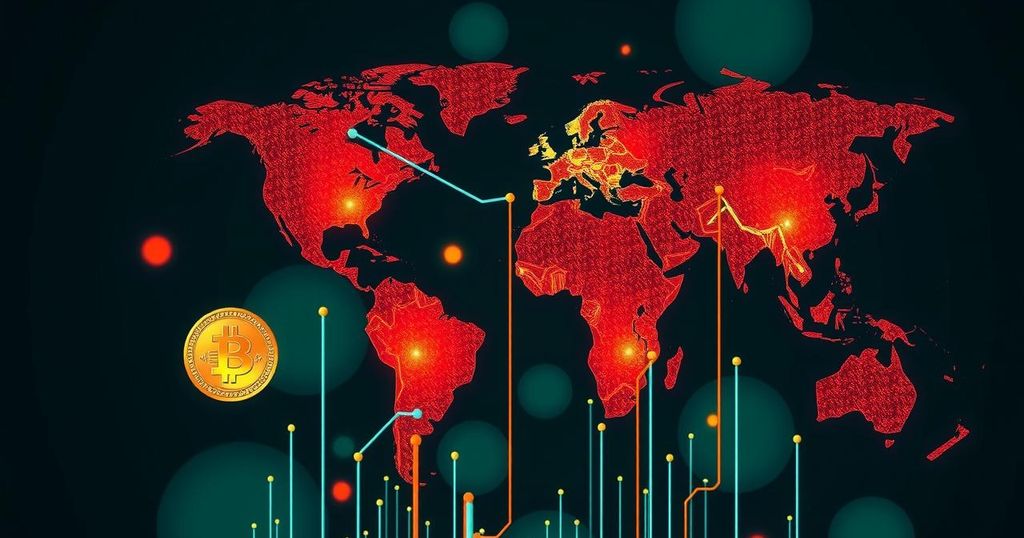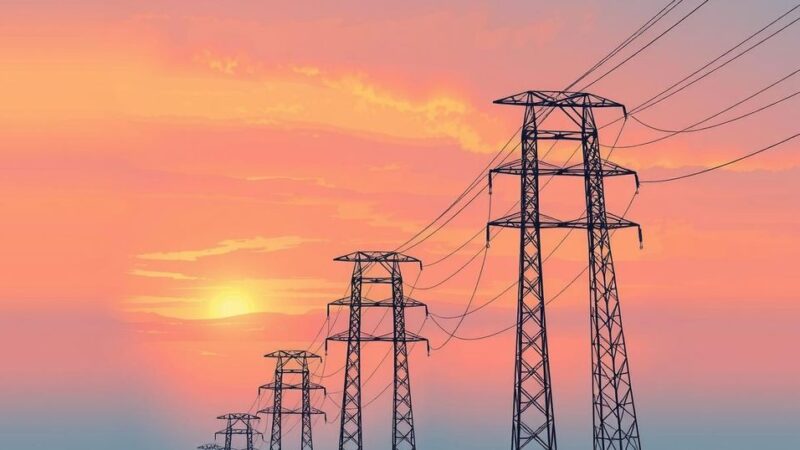A recent report by Consensys highlights Nigeria and South Africa as leading nations in digital asset ownership, with 99% of Nigerians aware of digital assets and 74% having owned them. Despite high engagement with cryptocurrencies, concerns about volatility and security remain. The findings reflect a broader distrust in traditional banking systems across both countries, further pushing individuals toward blockchain solutions for enhanced control over their digital identities.
Nigeria and South Africa have emerged as leaders in global digital asset ownership, as revealed by the Web3 Perception report conducted by blockchain incubator Consensys. The report indicates that an impressive 99% of Nigerians are aware of digital assets, with 77% demonstrating a clear understanding, significantly higher than in the United States and the United Kingdom, where the figures stand at 54% and 45%, respectively. Furthermore, 74% of Nigerians familiar with digital assets have owned them, and 42% continue to own such assets today.
In addition, the report notes that Nigerians exhibit a strong familiarity with Web3 and non-fungible tokens (NFTs), with 58% stating they are either very or fairly familiar with NFTs. South Africa also shows promising statistics, with 68% of respondents having owned digital assets at some point, although only 22% currently hold them. Approximately half of South Africans are familiar with Web3 and NFTs. This high level of ownership in these two major African economies correlates with a widespread distrust of their banking systems.
The report highlights that 65% of South African respondents believe that the financial system requires improvement or complete overhaul. In Nigeria, the sentiment is even stronger, with merely 10% believing the banking system functions effectively. Joseph Lubin, CEO of Consensys, pointed out that Nigerians are exploring digital assets and blockchain technology not solely for payment purposes, but also to exert greater control over their digital identities. He stated, “In terms of data privacy, 92 percent of Nigerians and 87 percent would like to have more control over their identity on the internet, while over half of respondents think that decentralization could improve traditional banking and social media platforms.”
Despite the overall high adoption of digital assets in Nigeria, concerns remain prevalent. More than half of the respondents identified volatility as a major obstacle, and many cited issues concerning scams, privacy, and security as significant deterrents. Nigeria has consistently led the African continent in the embrace of blockchain and digital asset technology, securing the second position in global adoption rankings, only surpassed by India—a position it has maintained for two consecutive years.
The report from Consensys indicates a growing trend in the adoption of digital assets within Nigeria and South Africa, two of Africa’s largest economies. This trend is particularly significant in light of prevailing distrust toward traditional banking systems. The ownership and understanding of digital assets in these countries surpass that of developed economies, demonstrating a possible shift in financial paradigms as citizens seek alternative solutions for financial transactions and identity management. Additionally, the incorporation of blockchain technology offers promising avenues for addressing issues of data privacy and security, showcasing a strong appetite for decentralization among the populace. With a considerable population of both nations showing willingness to engage with and utilize digital currencies, the potential for further growth in this sector remains substantial, despite existing concerns over market volatility and scams.
In summary, Nigeria and South Africa are at the forefront of global digital asset ownership, marked by significant awareness and adoption rates among their populations. With a common theme of distrust towards banking institutions, individuals in these nations are turning to digital assets and blockchain technology for greater control over their financial futures. While challenges such as volatility and scams persist, the desire for improved data privacy and decentralized systems suggests that the trend toward digital asset ownership is likely to continue evolving in Africa.
Original Source: coingeek.com






